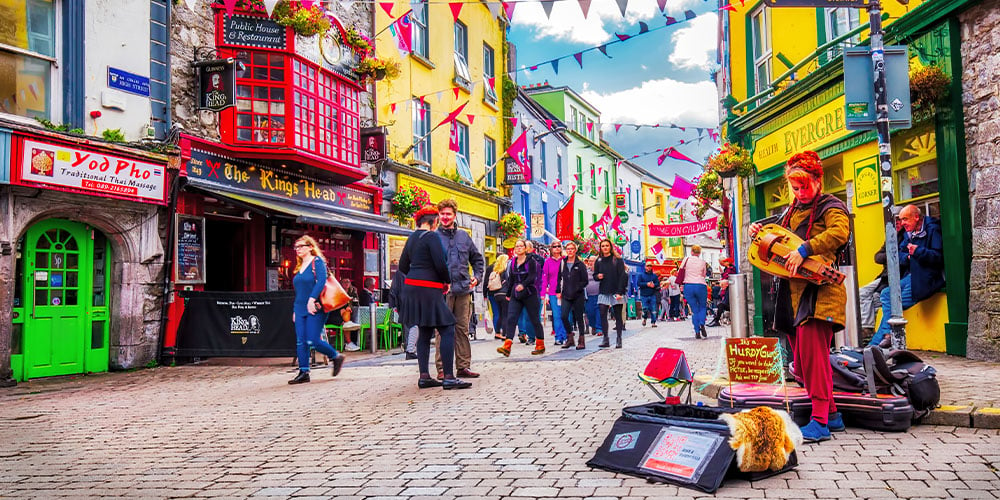-
Business Risk Services
Our Business Risk Services team deliver practical and pragmatic solutions that support clients in growing and protecting the inherent value of their businesses.
-
Consulting
Tailored consulting solutions that deliver measurable results through digital, regulatory and strategic transformation.
-
Corporate Finance and Deal Advisory
We offer a dedicated team of experienced individuals with a focus on successfully executing transactions for corporates and financial institutions. We offer an integrated approach, with our corporate finance specialists working seamlessly with tax and other specialists to ensure that every angle is covered.
-
Forensic Accounting
We have a different way of doing business by delivering real insight through a combination of technical rigour, commercial experience and intuitive judgment. We take pride in delivering responsive and tailored solutions to all our clients, capitalising on the wealth of experience housed within our Belfast and wider Forensics team
-
Restructuring
We work with a wide variety of clients and stakeholders such as high street banks, private equity funds, directors, government agencies and creditors to implement solutions which provide the best possible outcomes.

-
 Article Changes to filing options and requirements at Companies HouseFrom April 2027, Companies House will require all UK entities to file digital accounts. Learn what’s changing and how to prepare for the new rules.
Article Changes to filing options and requirements at Companies HouseFrom April 2027, Companies House will require all UK entities to file digital accounts. Learn what’s changing and how to prepare for the new rules. -
 Article FRS 102 Periodic Review series: Small companiesExplore key changes to small company disclosures under FRS 102 Section 1A, including UK GAAP updates on leases, tax, going concern and related parties.
Article FRS 102 Periodic Review series: Small companiesExplore key changes to small company disclosures under FRS 102 Section 1A, including UK GAAP updates on leases, tax, going concern and related parties. -
 Audit and Assurance FRS 102 Periodic Review series: Other changesOn 27 March 2024, the Financial Reporting Council issued amendments to FRS 100 – 105 (known as GAAP, or Generally Accepted Accounting Practice), a suite of accounting standards applicable in the UK and Ireland. These are used by an estimated 3.4 million businesses in preparing their financial statements.
Audit and Assurance FRS 102 Periodic Review series: Other changesOn 27 March 2024, the Financial Reporting Council issued amendments to FRS 100 – 105 (known as GAAP, or Generally Accepted Accounting Practice), a suite of accounting standards applicable in the UK and Ireland. These are used by an estimated 3.4 million businesses in preparing their financial statements. -
 Article ID Verification: Economic Crime & Corporate Transparency Act 2023Companies House is introducing mandatory identity verification requirements for Directors and People with Significant Control (PSCs), as the next step towards full implementation of the Economic Crime and Corporate Transparency Act 2023.
Article ID Verification: Economic Crime & Corporate Transparency Act 2023Companies House is introducing mandatory identity verification requirements for Directors and People with Significant Control (PSCs), as the next step towards full implementation of the Economic Crime and Corporate Transparency Act 2023.
-
Corporate and International Tax
Northern Ireland businesses face further challenges as they operate in the only part of the UK that has a land border with a country offering a lower tax rate.
-
Employer Solutions
Our team specialises in remuneration and incentive planning and works closely with employers, shareholders and employees to ensure that business strategies are aligned and goals achieved in the most tax efficient, cost-effective manner.
-
Entrepreneur and Private Client Taxes
Our team of experienced advisors are on hand to guide you through any decision or transaction ranging from the establishment of new business ventures, to realising value on exit, to succession planning and providing for loved ones.
-
Global Mobility Services
Grant Thornton Ireland offer a different approach to managing global mobility. We have brought together specialists from our tax, global payroll, people and change and financial accounting teams across Ireland and Northern Ireland, while drawing on the knowledge and insights of our global network of over 143 offices of mobility professionals to provide you with a holistic approach to managing global mobility.
-
Outsourced Payroll
Our outsourced service provides valued service to over 150 separate PAYE schemes. These ranging from 1 to 1000 employees, working for micro, SME and global employers. The service is supported by the integrated network of tax and global mobility teams and the wider Grant Thornton network delivering a seamless service. Experienced staff deliver a personal service built around your business needs.
-
Tax Disputes and Investigations
Our Tax Disputes and Investigation team is made up of tax experts and former HMRC investigators who have years of experience in dealing with a variety of tax investigations. Our expertise and insight can guide you through all interactions, keeping your cost at a minimum while allowing you to continue with the day to day running of your business.
-
VAT and Indirect Taxes
At Grant Thornton (NI) LLP, our team helps Northern Ireland businesses manage their UK and global indirect tax risks which, as transactional taxes, can quickly become big liabilities.


Update your subscriptions for Grant Thornton publications and events.
Understandably, such an upbeat prediction was given significant airtime, which sparked reaction and challenge by some in the academic community.
I’m not weighing in on the models used, nor who is right. As the old economist joke goes, if we were all laid end to end we would never reach a conclusion.
The premise of the analysis was that the economy has changed dramatically since the Good Friday Agreement in 1998, and it could change dramatically again off the back of the Windsor Framework.
I think that this is a sound premise and it got me thinking about one sector in particular, tourism and whether we truly appreciate its true value to the Northern Ireland economy. In 1968, there were 1.14 million overnight trips made by visitors here. This plummeted dramatically over the next couple of years, reaching a low point in 1976 of 432,000. A recovery started from here which got us back to 1968 levels by 1990.
The sector has largely continued to grow, apart from during major international events such as the great recession. By 1998, close to 1.5 million visitors were arriving. The pace of growth in our tourism figures has gathered since 2010, going from 1.8 million to 3 million over the course of the decade.
Major events such as the centenary of the Titanic (and the opening of the Titanic Belfast visitor centre), MTV Europe Music Awards, the Giro D’Italia and The Open golf to name a few really put a spring in the step of the tourism sector. Of course it is important to note that getting here was made much easier through support to increase air routes and the era of cheap flights.
Buoyed by the optimistic outlook that emerged in tourism, hoteliers have invested over £1 billion over the last two decades. The result is a vibrant, diverse industry which supports over 15,000 jobs with a direct payroll of around £250m in 2023.
That said, I contest that we aren’t valuing the sector accurately, and if we were, the challenges the industry faces would be treated as a higher priority by policy makers who seem to prefer the lure of what we call ‘high value added’ sectors.
Current estimates suggest the tourism industry is worth about £1.2 billion. However, back in 2007 a report called ‘Tourism in the Northern Ireland Economy’ took a forensic approach to measuring the impact of tourism across the whole economy. The approach, known as Tourism Satellite Accounts, was counting a total tourism spend of £1.3 billion.
So, that has got me thinking – despite some knowledge of the current size of the tourism industry, there must be more to it than we think.
My ambition is to complete a full re-run of the work that was done in 2007. For now, my economics team has been able to establish a good approximation of the 2007 approach using current data (annoyingly ‘current’ means 2019 with tourism data). On this basis, we believe total expenditure related to tourism in Northern Ireland could be £3.5 billion, more than double what it is being counted as.
As we are all painfully aware, the trading environment for tourism has been exceptionally difficult over the past couple of years. We don’t have the full picture of that due to the lag in data but what we do know is that the hotel sector returned to full trading in March 2022 and occupancy levels, which fell to 33% in 2020 were back up to 71.5% - rates that are slightly ahead of 2019 levels.
This should be a good news story for the sector but the energy crisis, wider inflation and ongoing staff shortages have made trading very challenging. It would be a mistake to think the industry has stagnated over the past three years. The NI Hotels Federation’s latest Hotel Market Report notes that there have been several high profile sales and, even with limited openings predicted for 2023, the sector will invest in the region of £100m over the course of the year between construction, sales, and refurbishments.
Despite the challenging trading environment, tourism and hospitality acts as one of our key economic drivers. It might even be considerably more of an economic driver than we thought.




